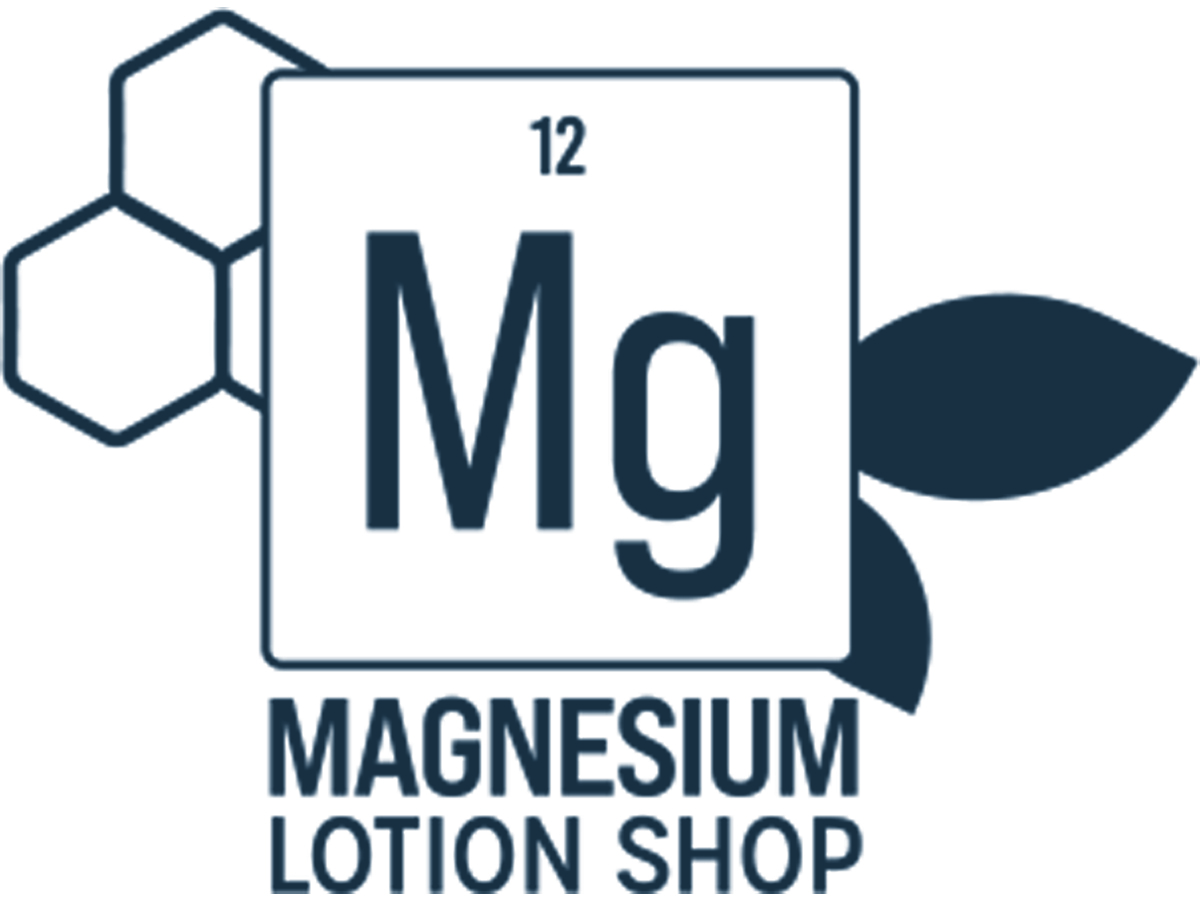Headaches are painful, annoying, and in some cases, downright debilitating. They disrupt our daily lives and make it hard to get things done. For those looking for natural and effective ways to alleviate headache symptoms, using magnesium for headaches might just be the answer you’ve been searching for.

Magnesium is an essential mineral that plays an important role in keeping our bodies functioning properly. It helps with brain signaling, muscle contraction (including tension headaches), and regulating blood vessels. It’s truly the superhero of vitamins and minerals, supporting over 300 functions our bodies perform on a daily basis.
If you struggle with headaches – whether migraines, tension headaches, or cluster headaches – let’s see if magnesium supplementation can help make them go away, or even prevent them from happening in the first place.
Understanding Magnesium for Headaches and Magnesium Deficiency
Where Do Headaches Come From?
Migraines, tension headaches, cluster headaches, and premenstrual migraines each come with their own set of unique characteristics and triggers. While research hasn’t been able to pinpoint the exact cause of headaches, this 2020 study found that magnesium deficiency might have a role to play in how these headaches develop and how intense they become.
What Is Magnesium and Why Do We Need It?
As we mentioned earlier, magnesium is involved in over 300 enzymatic reactions in our bodies, including regulating blood sugar, managing blood pressure, and helping with the synthesis of DNA and RNA. In relation to headaches, it helps us generate energy and build proteins, which are essential for muscle contractions and keeping our nerves in top shape.
Signs of Low Magnesium Levels
The decline of magnesium in the body happens slowly over time. When the body isn’t getting enough magnesium to carry out the functions it’s required for, magnesium deficiency may cause these symptoms:
- Muscle Cramps and Weakness: Magnesium plays a vital role in muscle contraction and relaxation. A deficiency can lead to muscle spasms, cramps, and general weakness.
- Central Nervous System Disturbances: Magnesium is involved in regulating neurotransmitters and nerve function. Deficiency may contribute to irritability, anxiety, restlessness, and difficulty concentrating.
- Fatigue and Weakness: Magnesium is essential for energy production in the body. Insufficient levels can lead to persistent fatigue and a general sense of weakness.
- Migraine Headaches: Magnesium deficiency has been linked to an increased frequency and severity of migraine headaches. Low levels of magnesium may affect blood vessel regulation and neurotransmitter activity, contributing to migraine frequency and intensity.
- Cardiovascular Issues: Magnesium is crucial for maintaining normal heart rhythm and blood pressure. Deficiency has been associated with an increased risk of high blood pressure, irregular heart rhythms, and heart disease.
- Sleep Disturbances: Magnesium regulates melatonin, a hormone that helps regulate sleep-wake cycles. Inadequate magnesium levels can disrupt sleep patterns and contribute to insomnia.
- Bone Health Issues: Magnesium works with calcium and vitamin D to promote strong and healthy bones. Deficiency can compromise bone density and increase the risk of osteoporosis.
Does Magnesium Deficiency Lead to Headaches?
Scientists have been studying the link between magnesium deficiency and headaches for quite some time. A 2018 study discovered that people who suffer from migraines actually have significantly lower levels of magnesium in their blood compared to those without headaches. This leads us to conclude that low magnesium could be a contributing factor to the development and intensity of migraines.
A similar conclusion was made in a 2019 study, where researchers gave one group daily magnesium supplements while another group received a placebo. In the end, those in the magnesium group experienced a significant decrease in the frequency and intensity of their tension headaches compared to the placebo group.
Why does magnesium seem so magical? According to the American Migraine Foundation, magnesium helps regulate neurotransmitters that are involved in pain signaling, like serotonin and dopamine. In layman’s terms, it keeps pain signals in check.
Magnesium also plays a role in maintaining the tone and flexibility of our blood vessels, and this has an impact on the development of headaches.
Can Magnesium Cause Headaches?
Magnesium itself is not typically known to cause headaches. In fact, it’s an important mineral that supports body functions that prevent headaches in the first place – nerve function, muscle contraction, and regulating blood vessels.
But here’s the catch: everyone responds to magnesium differently, especially with oral magnesium supplementation. Some folks might experience severe side effects like tummy discomfort, diarrhea, or cramping if they take high doses of magnesium orally.
Magnesium is found naturally in dark leafy greens, whole grains, and legumes, and most people have no issue consuming these foods. Also, topical supplements like oils or lotions typically don’t come with negative side effects.
If you’re thinking about trying magnesium for headaches and you notice new or worsening headaches after starting them, it’s a good idea to talk to a healthcare professional. They can take a closer look at your symptoms, figure out if there might be any other underlying causes, and give you some solid guidance on whether using magnesium for headaches is right for you.
Can Magnesium Help With Headaches?
Scientists have been digging deep into the connection between magnesium and headaches, specifically how magnesium supplementation can potentially help reduce the frequency and intensity of headaches.
Magnesium for Migraines
This study looked into whether magnesium supplementation could help with treating migraines. They studied several clinical trials and found that magnesium supplementation can actually help prevent migraine attacks! They even recommended a dosage of about 400-600 mg of magnesium to help ease those pesky migraine symptoms.
In addition, the American Headache Society recommends magnesium as a natural option for preventing migraines, especially for those who are looking for a first-line option rather than a prescription.
Magnesium for Headaches
This particular study wanted to see if taking magnesium for headaches may be helpful in treating tension-type headaches, in particular. The researchers found that when people took magnesium supplements, it made a big difference in reducing both the frequency and intensity of their tension headaches.
If you suffer from headaches, magnesium could be a real game-changer!
How To Use Magnesium for Headaches When They Occur
Supplementation
If you’re looking to boost your magnesium levels and potentially find relief from headache symptoms, adding magnesium supplements to your daily routine is a popular choice. There are various forms of magnesium supplements available, such as magnesium citrate, magnesium glycinate, and magnesium oxide. Each of these supplements works by increasing your magnesium intake, which can have a positive impact on your overall well-being and potentially help alleviate headaches.
Topical Magnesium Products
Oral supplementation is common, but a major side effect of this is severe digestive discomfort. Topical products like lotions, creams, or oils are a great alternative. They’re effective, easy to use, and bypass the digestive system altogether causing virtually no negative side effects.
In addition, topical magnesium products can be applied directly to your skin, allowing the magnesium to be absorbed and potentially providing targeted relief.
Self-Care Products
Another option to boost magnesium intake is by adding bath flakes to a daily bath. These products offer a unique method called transdermal absorption, where magnesium ions are easily absorbed through the skin and penetrate the underlying tissues. It’s like giving your body a direct infusion of magnesium.
All topical options – lotions, cremes, oils, and bath flakes – allow your body to absorb magnesium through the skin. This means that you can enjoy the benefits of magnesium without worrying about potential side effects including digestive issues or absorption limitations. For those with stomach and gastrointestinal disorders like inflammatory bowel disease, topical magnesium is a wonderful option.
Tracking The Effects of Magnesium
It’s important to keep tabs on your headache symptoms and how magnesium supplementation may be impacting them. By closely monitoring changes in the frequency, intensity, and duration of your headaches, you can gauge whether magnesium is providing the relief you’re looking for and make any necessary adjustments to your management routine.
This study highlighted how consistently monitoring and documenting your symptoms can offer valuable insights into how magnesium is influencing your headaches. It also provides a helpful record that you can share with your healthcare provider, enabling them to better understand your experiences and provide appropriate guidance.
A Case in Using Magnesium for Headaches
We’ve delved into the fascinating role that magnesium plays in easing headache symptoms. With its ability to regulate neurotransmitters and relax blood vessels, magnesium offers a promising natural option for finding relief from headaches. Adding magnesium to your headache management routine can be a safe and effective approach worth considering.
We encourage you to explore the potential benefits of magnesium supplementation as part of your headache relief strategies. However, it’s important to consult with healthcare professionals before incorporating any new supplements into your routine. They can provide personalized advice tailored to your specific needs, ensuring you take the optimal dosage and addressing any potential interactions with medications or health conditions.
By harnessing the power of magnesium and seeking expert guidance, you can proactively take steps toward relieving your headaches and improving your overall well-being. Don’t hesitate to reach out to healthcare professionals who can provide the support and knowledge you need to make informed decisions about incorporating magnesium into your headache management plan.
